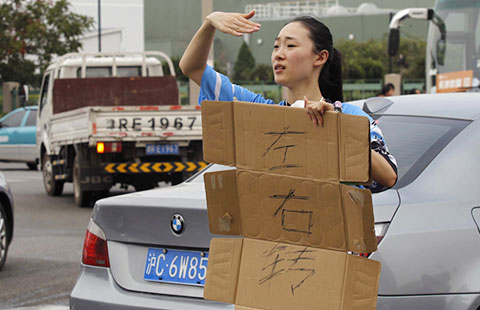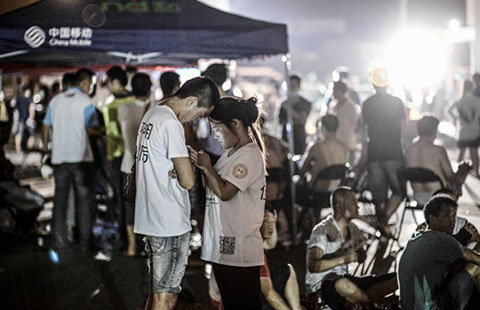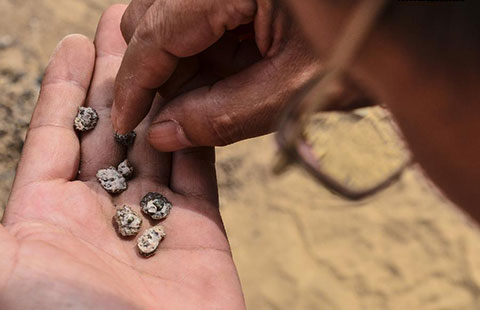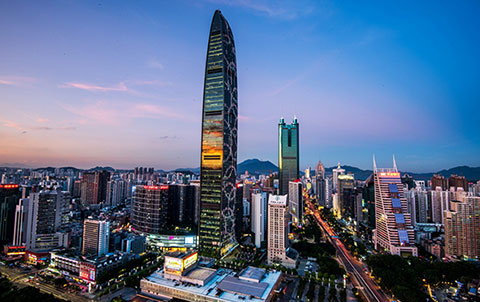Abe playing to a gallery
Updated: 2015-08-18 07:42
(China Daily)
|
||||||||
 |
|
Japan's Prime Minister Shinzo Abe attends a news conference to deliver a statement marking the 70th anniversary of World War Two's end, at his official residence in Tokyo August 14, 2015. Abe, in a statement marking the 70th anniversary of World War Two's end, acknowledged Japan had inflicted "immeasurable damage and suffering" on innocent people but said generations not involved in the conflict should not be burdened with continued apologies. [Photo/Agencies] |
Japanese Prime Minister Shinzo Abe's ambiguous remarks on Friday in his speech to commemorate Japan's defeat in World War II reflect an elusive attitude toward core issues and his lack of sincere repentance for wartime crimes.
Abe's speech has invoked criticism and suspicion both at home and abroad. In an editorial, Asahi Shimbun claimed that Abe's ambiguous attitude has made people wonder for whom he was speaking. Mainichi Shimbun said that the focus of the speech, made at a time when the public approval rating for Abe's Cabinet is sagging because of people's opposition to the new security bills Abe is trying to push through parliament, had shifted from the crucial issues, such as an apology, to some lesser ones.
On Saturday, a day after Abe made these remarks and also the 70th anniversary of Japan's surrender in World War II, Abe's aide Koichi Hagiuda sent a cash offering on behalf of Abe to the Yasukuni Shrine where 14 Class-A war criminals are honored among the numerous war dead.
It is irresponsible for any Japanese leader to hold an equivocal attitude toward Japan's wartime crimes. Some of Abe's words have exhibited an intention to cater to political forces who deny Japan's acts of aggression and who refuse to make an apology for its war crimes. However, any move made with such an ulterior political motive is in open contempt of international law and will only lead Japanese people further astray.
Japanese people long to live in a country that can completely bid farewell to its history of aggression and adhere to peaceful development, but that requires Japan to face up to its wartime crimes and profoundly reflect on that period of history, in order to win forgiveness from its neighbors and win their respect.
The above is an abridgement of a People's Daily article published on Monday.

 In pictures: Life near Tianjin blasts site
In pictures: Life near Tianjin blasts site
 The world in photos: Aug 10-16
The world in photos: Aug 10-16
 In the face of chaos, people persevere
In the face of chaos, people persevere
 Top 10 most expensive office markets in the world
Top 10 most expensive office markets in the world
 Times Square 'Kiss-In'
Times Square 'Kiss-In'
 School turns into place of shelter in Tianjin
School turns into place of shelter in Tianjin
 Earliest site of coal fuel found in Xinjiang
Earliest site of coal fuel found in Xinjiang
 Top 10 Chinese cities with highest property prices
Top 10 Chinese cities with highest property prices
Most Viewed
Editor's Picks

|

|

|

|

|

|
Today's Top News
Bomb in centre of Thai capital kills at least 12
'Window' on WWII opens in Bay Area
US pilot is remembered in book, film
Sodium cyanide in Tianjin to be collected, neutralized
Premier Li pledges thorough investigation into deadly blasts
Experts say J-10s would benefit Iran
Indonesia rescuers head to mountains in missing plane search
New York event marks war anniversary
US Weekly

|

|





